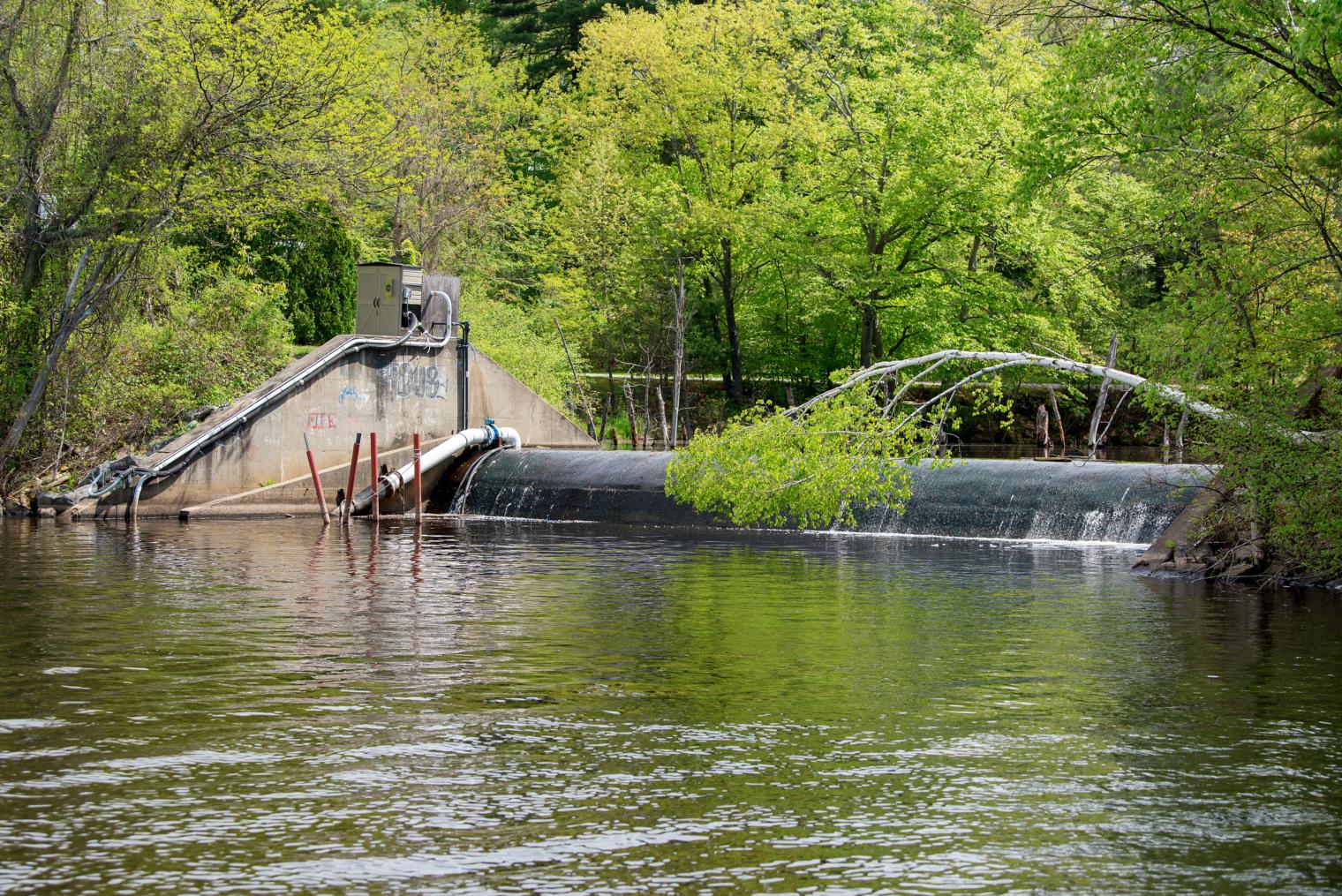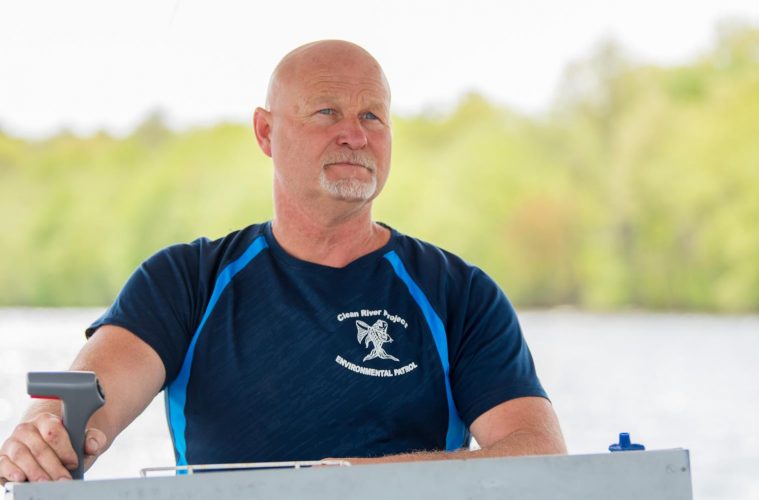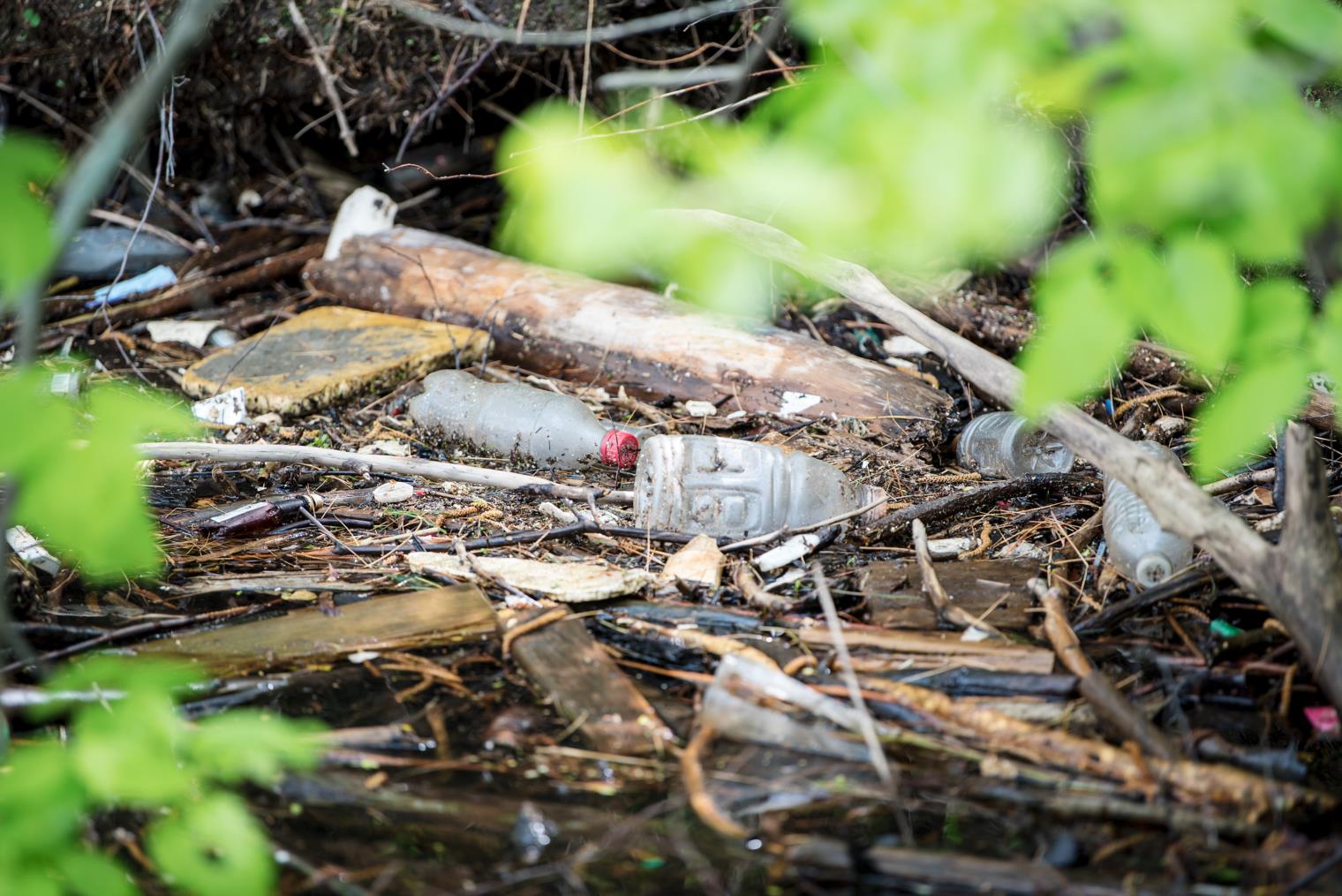
Trash Along the Shoreline
For 117 miles, the Merrimack River twists and turns through communities large and small, including Morrison’s hometown. “I was born and raised in Methuen. The river was my backyard,” he says. “As a young man, I’d seen how much pollution was out there. So I took action. I had to make a change.” In 2005, Morrison started Clean River Project, a nonprofit dedicated to cleaning up the trash in the Merrimack River, while working as a self-employed contractor. This past January, he finally started taking a small salary and now is focusing full-time on Clean River Project. The nonprofit operates out of a small trailer that sits on the riverbank in Methuen behind an auto body shop. “Before that I was working out of my truck,” Morrison says. Now, Clean River Project has a small staff and countless volunteers, including ones from local corporations like 3M, which has several plants in communities along the Merrimack River on the North Shore, including Methuen, Haverhill, and Chelmsford.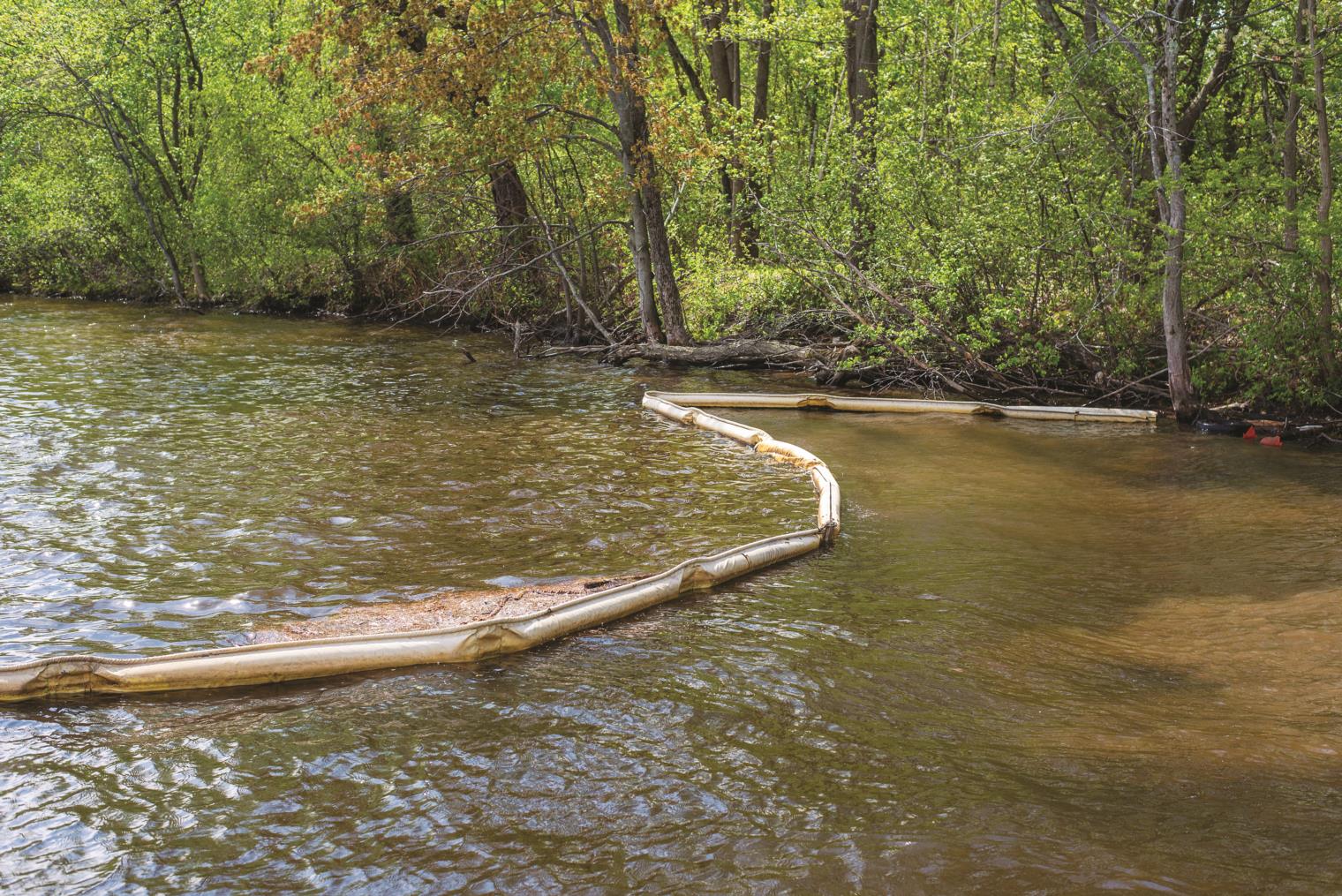
Volunteers Lead the Way
According to Jean Gilmore of the 3M Methuen Community Relations Council, 3M has supported Clean River Project for close to 10 years, through employee volunteerism and monetary grants, including a $20,000 Environmental Reserve Fund Grant from 3Mgives, which Clean River Project used to purchase a boat and new booms. 3M employees also volunteer for cleanup days, wading into the river to pull out tires, furniture, or other garbage and cleaning the trash along the riverbanks. “Hands, feet, clothes…everything gets dirty when you are working a cleanup event,” Gilmore says. “The most eye-opening experience was probably seeing all of the hypodermic needles that washed up on the banks of the river.”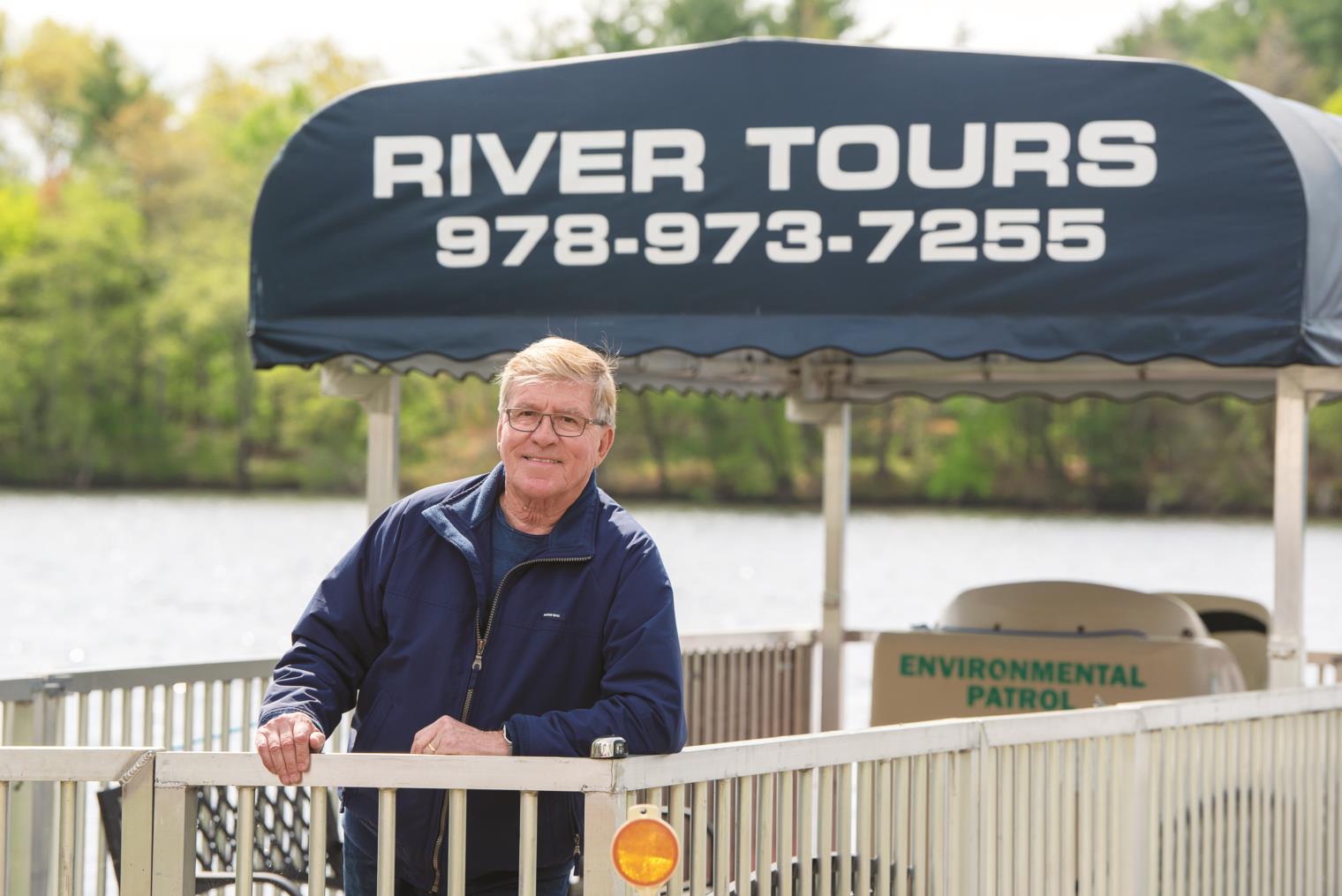 In 2016 Clean River Project was also awarded a $40,000 Massachusetts Environmental Trust grant to remove motor vehicles from the river. But even with volunteers, donations, and grants, the work of maintaining and emptying the booms and disposing of the hundreds of tons of trash they collect is expensive, and Morrison wants cities and towns along the river to pick up some of those costs.
“We’re getting to the point now where we can’t do it anymore for free,” Morrison says. Although Clean River Project has contracted with Lawrence and Chelmsford, Morrison says other towns have been more reticent.
The town of Groveland, for instance, turned down a contract because of cost, arguing that larger cities located upriver should bear more of the financial burden than a small town.
“Those communities really needed to be paying more of the share of the cleanup,” says Denise Dembkoski, finance director for the town of Groveland.
In 2016 Clean River Project was also awarded a $40,000 Massachusetts Environmental Trust grant to remove motor vehicles from the river. But even with volunteers, donations, and grants, the work of maintaining and emptying the booms and disposing of the hundreds of tons of trash they collect is expensive, and Morrison wants cities and towns along the river to pick up some of those costs.
“We’re getting to the point now where we can’t do it anymore for free,” Morrison says. Although Clean River Project has contracted with Lawrence and Chelmsford, Morrison says other towns have been more reticent.
The town of Groveland, for instance, turned down a contract because of cost, arguing that larger cities located upriver should bear more of the financial burden than a small town.
“Those communities really needed to be paying more of the share of the cleanup,” says Denise Dembkoski, finance director for the town of Groveland.
